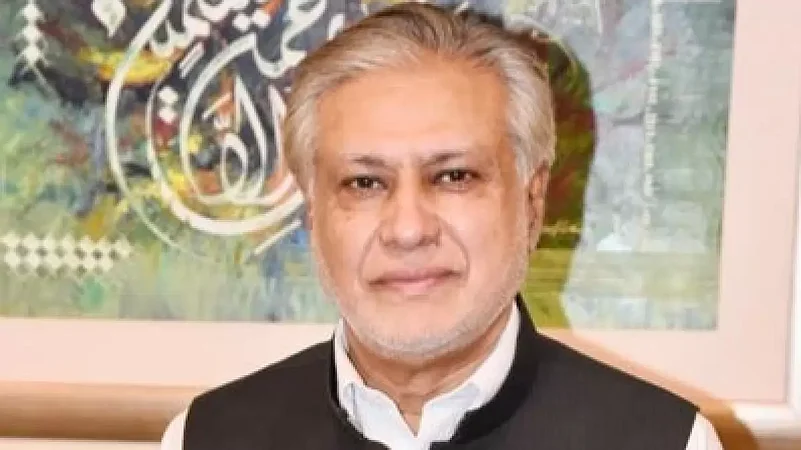Pakistan's finance minister, Ishaq Dar, expressed confidence in the country's budget projection of 3.5 percent economic growth for the year 2023-2024, calling it a "realistic target." Despite facing an economic crisis, Dar believed the target was on the lower side. He also expressed hope for Pakistan's upcoming ninth International Monetary Fund (IMF) review, but doubted its ability to clear subsequent reviews. The budget outlined a meager projected growth of 0.29 percent in Pakistan's gross domestic product (GDP) and a fiscal deficit of 6.54 percent of GDP.
Dar emphasized that there was no room left in the budget to further reduce the fiscal deficit target, attributing the country's economic struggles to a series of crises exacerbated by a stall in bailout funding from the IMF. The finance minister clarified that the government under Shehbaz Sharif had no plans to reschedule debt with Paris Club creditor nations or seek debt write-offs.
Pakistan needed to secure additional financing commitments of $6 billion to unlock funding under the IMF review. However, the country had only obtained commitments totaling $4 billion, primarily from Saudi Arabia and the United Arab Emirates. Despite these challenges, Dar declared that Pakistan had emerged from the economic vulnerability phase and would make timely payments to multilateral lenders while seeking bilateral debt restructuring.
Dar ruled out approaching multilateral or development institutions for debt rescheduling and expressed reluctance to default, stating that it was not a dignified way to address financial obligations. He suggested negotiations with bilateral lenders to extend repayment periods, focusing on debt servicing and principal backloading as potential options. Domestic debt rescheduling was also deemed unnecessary.
While acknowledging Pakistan's deep economic vulnerability, Dar claimed that the government had successfully overcome it, preventing further decline. He outlined the objective of restoring the country's economic progress, aiming to achieve the 2017 economic indicators when Pakistan was ranked as the 24th largest economy globally. The finance minister emphasized the government's focus on agriculture, IT, and small and medium-sized industry to achieve the targeted GDP growth.
Pakistan's dependence on the IMF remained crucial, with the country awaiting a delayed tranche of $1.1 billion from a $6.5 billion bailout package approved in 2019. The IMF imposed stringent conditions that the government needed to fulfill before releasing the funds. Experts warned that without a revival of the IMF program or a new bailout package in the next fiscal year, Pakistan would face difficulties in avoiding default.
Dar also highlighted the significant increase in total current expenditure, reaching Rs 13.3 trillion, a 53 percent rise from the previous year. The expenditure included subsidies for various sectors. Pakistan's economy, plagued by unchecked inflation and the aftermath of devastating floods, has faced severe challenges, straining the livelihoods of its impoverished population.
(With PTI Inputs)


























